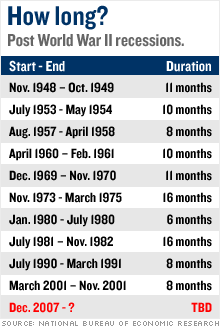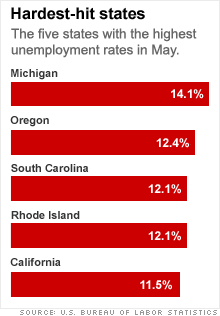Perhaps that discrimination against white males is perfectly all right? Perhaps that if the law doesn't suit their sense of empathy that the law should be ignored? Perhaps that racism is only racism if the melanin content of the skin is above a certain level?If Obama gets enough appointees, we will see this decision reversed.
The decision will now go to The Hague to determine if the white fire-fighter has committed crimes of hate against humanity for participating in a situation where laws are used to create "disparate impact."
High Court Rules for White Firefighters in Discrimination Suit
Ruling Reverses High-Profile Decision by Supreme Court Nominee Sonia SotomayorVideoThe Supreme Court has ruled that white firefighters in New Haven, Conn., were unfairly denied promotions because of their race, reversing a decision high court nominee Sonia Sotomayor endorsed as an appeals court judge.
Washington Post Staff Writer
Monday, June 29, 2009; 12:07 PM
The Supreme Court today narrowly ruled in favor of white firefighters in New Haven, Conn., who said they were denied promotions because of their race, reversing a decision by Judge Sonia Sotomayor and others that had come to play a large role in the consideration of her nomination for the high court.
The city had thrown out the results of a promotion test because no African Americans and only two Hispanics would have qualified for promotions. It said it feared a lawsuit from minorities under federal laws that said such "disparate impacts" on test results could be used to show discrimination.
In effect, the court was deciding when avoiding potential discrimination against one group amounted to actual discrimination against another.
The court's conservative majority said in a 5 to 4 vote that is what happened in New Haven.
"Fear of litigation alone cannot justify an employer's reliance on race to the detriment of individuals who passed the examinations and qualified for promotions," wrote Justice Anthony M. Kennedy.
Justice Ruth Bader Ginsburg wrote for the liberals on the court and said the decision knocks the pegs from Title VII of the Civil Rights Act.
She read her dissent from the bench for emphasis. "Congress endeavored to promote equal opportunity in fact, and not simply in form," she said. "The damage today's decision does to that objective is untold."
On the last day on the bench for retiring Justice David H. Souter, the court failed to reach a decision on one of its most important cases of the term: whether a conservative group's production of a 90-minute film on Hillary Rodham Clinton amounted to a documentary, or merely a long commercial of the type restricted by the McCain-Feingold campaign finance reform act.
Instead, the court took the unusual action of scheduling new arguments on the case for Sept. 9, before the court's new term begins next October. The court wants new briefings on issues that could lead to the justices declaring unconstitutional that part of the act, formally called the Bipartisan Campaign Finance Reform Act of 2002.
The court's decision probably will lead Democrats to push efforts to have a vote on Sotomayor's confirmation so she can be in place before the September hearing, although it is unclear whether her replacement of Souter would affect the outcome of the case.
Senate hearings on her nomination are set to begin in two weeks.
The New Haven case, Ricci v. DeStefano, has become the ruling that Sotomayor's critics most point to for evidence that she lets her background influence her decisions, even though her role has been somewhat inflated.
The promotion test results produced a heated debate in New Haven, and government lawyers warned the city's civil service board that if it certified the test results, minority firefighters might have a good case for claiming discrimination under Title VII. Federal guidelines presume discrimination when a test has such a disparate impact on minorities.
The board split 2 to 2, which meant the exam was not certified. Those who opposed using the results said they worried the test must be flawed in some way that disadvantaged minorities. (The test questions have not been made public.)
The white firefighters filed suit, saying their rights had been violated under both the law and the Constitution's protections of due process.
District Judge Janet Bond Arterton dismissed their suit before it went to trial. She said in her 47-page decision that the city was justified under the law in junking the test, even if it could not explain its flaws.
The case then went to the U.S. Court of Appeals for the 2nd Circuit, where Sotomayor and judges Robert Sack and Rosemary S. Pooler heard the appeal. Oral arguments lasted an hour, with Sotomayor leading the questioning, as is her reputation. But instead of issuing a detailed and signed opinion, the panel said in a brief summary that, although it was "not unsympathetic" to the plight of the white firefighters, it unanimously affirmed the lower court's decision for "reasons stated in the thorough, thoughtful, and well-reasoned opinion."
Kennedy's opinion referred to the judgment of Sotomayor and the other judges only by noting the short opinion.
Kennedy said the standard for whether an employer may discard a test is whether there is a strong reason to the employer to believe that the test is flawed in a way that discriminates against minorities, not just by looking at the results.
In New Haven's case, "there is no evidence -- let alone the required strong basis in evidence -- that the tests were flawed because they were not job-related or because other, equally valid and less discriminatory tests were available to the city," Kennedy wrote.
The case has drawn considerable attention not just because of Sotomayor's role but because of the sympathetic nature of the claim brought by the firefighters, who said they were discriminated against simply because of the color of their skin.
The lead plaintiff, Frank Ricci, is a veteran firefighter who said in sworn statements that he spent thousands of dollars in preparation and studied for months for the exam. Ricci said he is dyslexic, so he had tapes made of the test materials and listened to them on his commute to work.



















